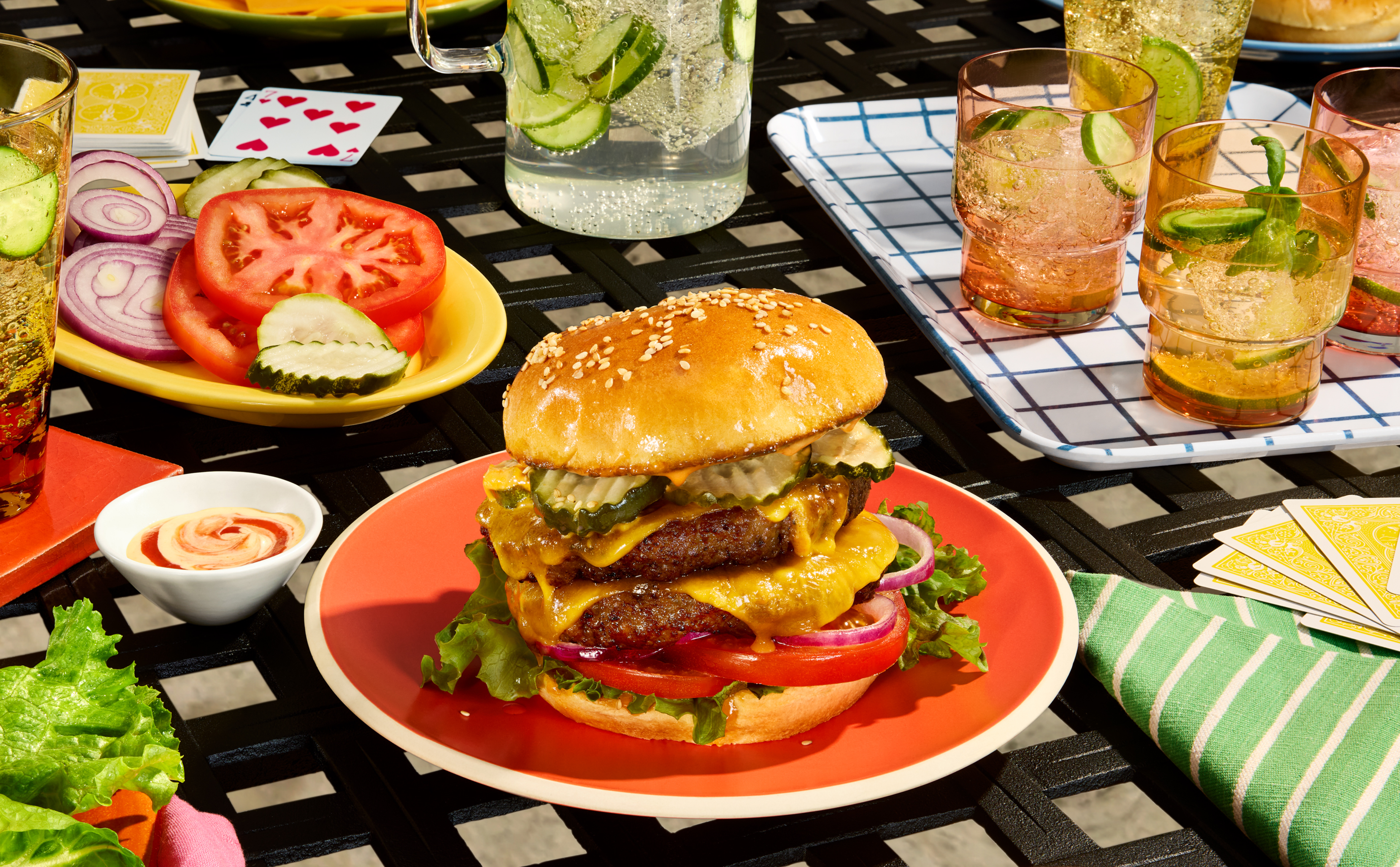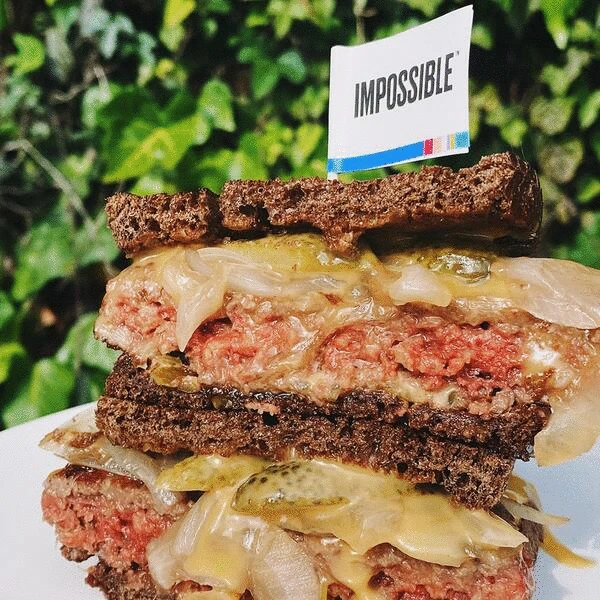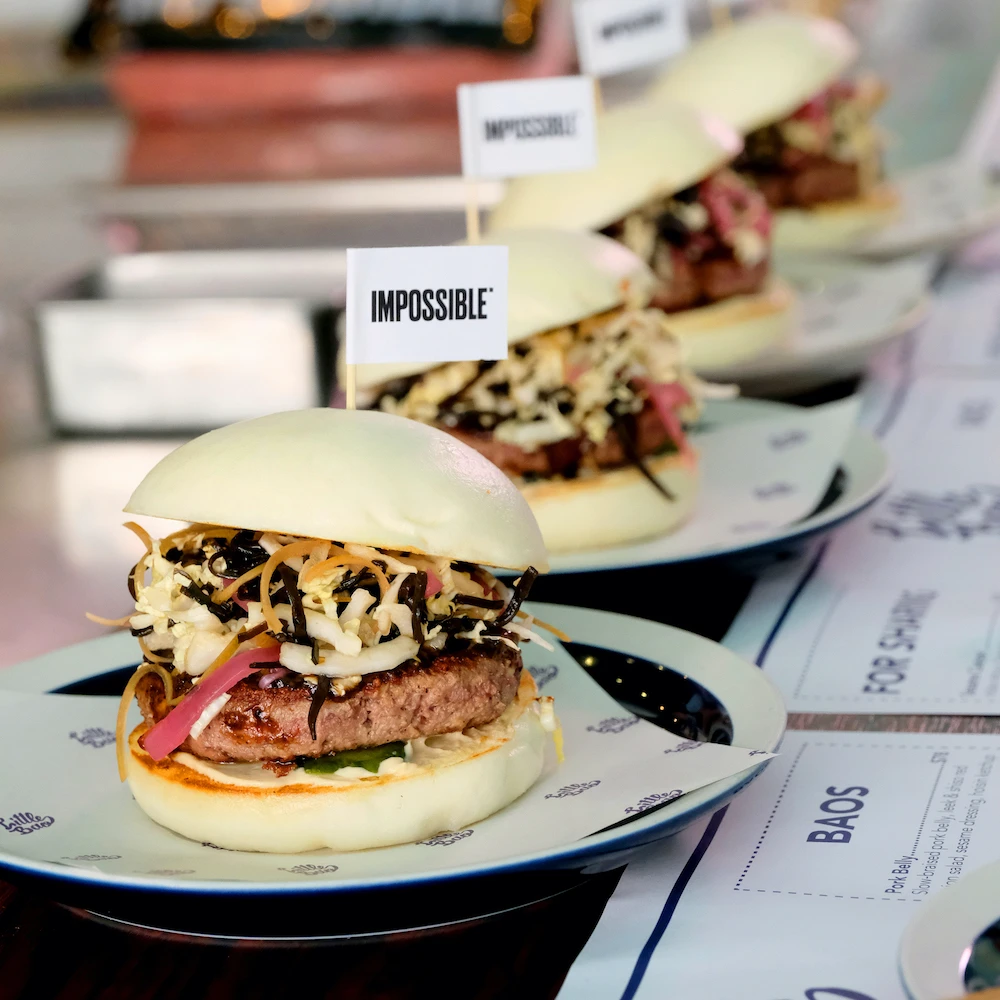
Front of House
Tips for launching and selling ImpossibleTM menu items
(Tell your customers)
"Delicious Meat. Made from Plants."
Impossible™ products are meat made from plants, for people who love eating meat. Their meaty texture and delicious taste satisfy cravings from meat, providing nutrients and using fewer natural resources.
Make sure your staff knows that Impossible™ dishes aren’t made for vegans, they’re made for everyone! Have them try a sample for themselves -- one bite and they’ll see what the buzz is about.


(Menu Guidelines)
How to Highlight ImpossibleTM Menu Items
Meat-eaters don’t love “veggie burgers” or “fake meat,” so we recommend avoiding those words on your menu. Try describing it as "delicious meat made from plants" instead. Want more tips? Check out our free menu guidelines.


(On the Same Page)
Training Your Staff
Your staff are your biggest brand ambassadors. Equip them with the talking points they need to sell more Impossible menu items. Check out our e-learning course or download our quick tips & talking point guides for Impossible™ Beef and Impossible™ Sausage Made From Plants.

(Not Serving Yet?)
Put it on your menu
ImpossibleTM menu items have a track record of driving sales, traffic and revenue. See how ImpossibleTM dishes on your menu can boost your business!
FREQUENTLY ASKED QUESTIONS:
WHAT’S IN IMPOSSIBLE SAUSAGE AND IMPOSSIBLE BEEF?
Soy protein is the primary ingredient in both recipes. They also contain coconut and sunflower oil (for that special sizzle) and heme (the “magic ingredient” that makes meat taste like meat). You can see the full breakdown of Impossible Beef's ingredients here(opens in a new tab) and Impossible Sausage's ingredients here(opens in a new tab).
DOES IMPOSSIBLE™ MEAT MADE FROM PLANTS HAVE ALLERGENS?
Both Impossible Beef and Impossible Sausage contain soy. They also contain coconut oil (the FDA classifies coconuts as tree nuts for food labelling purposes, but refined coconut oil is not considered an allergen). Our product does not contain dairy, eggs, fish, peanuts, shellfish, or wheat, and it’s safe for those with alpha-gal syndrome.
Impossible Beef also contains potato protein. If you have an allergy to either raw or cooked potatoes, you should not consume Impossible Beef.
If you're dining out, please apply the same level of caution that you would with any food and check with the restaurant about cross-contamination risks. And as always, please reach out to us with questions.
WHAT IS THE DIFFERENCE BETWEEN IMPOSSIBLE SAUSAGE AND IMPOSSIBLE BEEF?
Just like Impossible Beef, Impossible Sausage is delicious and made from plants. There are some key differences, many of which come down to the difference between pre-seasoned, pre-cooked sausage and raw ground beef. Anything you would make with pre-seasoned, pre-cooked sausage, you can make with Impossible Sausage. Anything you would make with raw ground beef, you can make with Impossible Beef.
WHAT IS THE SCIENCE BEHIND IMPOSSIBLE PRODUCTS?
Meat is just a combination of protein, fats and flavors. We make our meat the same way, but we use plant-based ingredients instead of animals. And that takes some work behind the scenes. Want to learn more about the science behind our products? Click here(opens in a new tab).
HOW ARE IMPOSSIBLE PRODUCTS DIFFERENT FROM OTHER PLANT-BASED MEATS?
Impossible meat is the only plant-based meat that has heme, which is why it’s so delicious. Heme is a molecule found in all living things – both plants and animals – that gives meat its unmistakably meaty flavor. Our heme is derived from soybeans and produced by fermenting genetically modified yeast (similar to how some cheeses and wines are made).